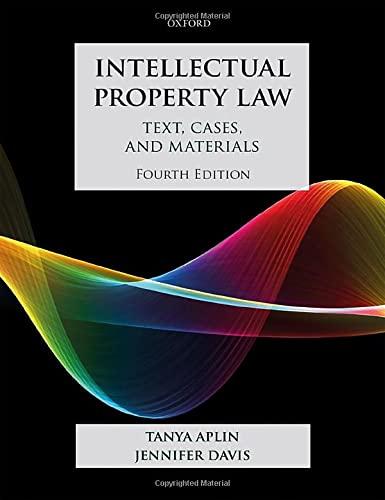Question
(1) The Seventh Circuit has held that when a statute is unambiguous, the court does not need to ever consider legislative history. On the hand,
(1) The Seventh Circuit has held that when a statute is unambiguous, the court does not need to ever consider legislative history. On the hand, the Ninth Circuit has concluded that although the plain meaning is a starting point for statutory construction, the court should consider the entire law, including its object and policy, and should consider legislative history even when the plain language is unambiguous if the legislative history clearly indicates that Congress meant something other than what it said.
Which case should control?
Which approach do you think is better and why?
Is there a different approach you think the courts should consider?
Step by Step Solution
There are 3 Steps involved in it
Step: 1

Get Instant Access to Expert-Tailored Solutions
See step-by-step solutions with expert insights and AI powered tools for academic success
Step: 2

Step: 3

Ace Your Homework with AI
Get the answers you need in no time with our AI-driven, step-by-step assistance
Get Started


